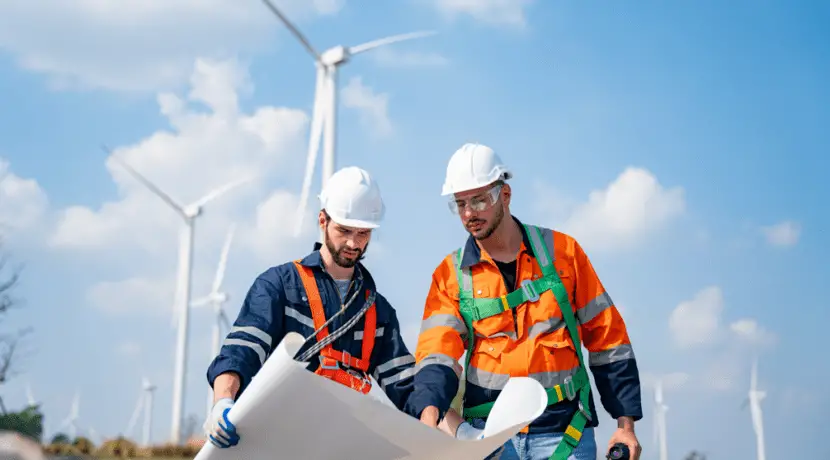Energy transition will cost Germany 1.2 trillion euros by 2035
Engine of industry growth? 30. April 2024 3:52 p.m. Robert Klatt The energy transition requires investments of 1.2 trillion euros in Germany by 2035. This results in high gross value creation, which could be a growth engine for the industry. Berlin, Germany). In Germany, renewable energies already generate more than half of the electricity. According […]

Engine of industry growth?
Robert Klatt
The energy transition requires investments of 1.2 trillion euros in Germany by 2035. This results in high gross value creation, which could be a growth engine for the industry.
Berlin, Germany). In Germany, renewable energies already generate more than half of the electricity. According to the Federal Environment Agency (UBA), climate-friendly energy sources only account for 22% of total energy consumption so far, but are expected to be significantly expanded in the coming years. The analysts of Federal Association of the Energy and Water Industry ev (BDEW) and the management consulting firm Ernst and Young (EY) have now calculated how much investment will be needed for the energy transition by 2035.
According to scientists, the German energy industry is expected to invest an additional 721 billion euros by 2030. Between 2030 and 2035, the additional investments required will amount to a further 493 billion.
Green power plants and grid expansion
According to the analysis, over the next six years, 350 billion euros will need to be spent on green power plants, mainly wind energy and solar analytics, 140 billion euros on electricity transmission networks and gas and 140 billion euros to distribution networks in order to achieve the energy transition. There are also “more modest” investments in district heating (32 billion), green gas production capacities (23 billion), storage systems (17 billion) and the central H2 network (15 billion).
According to analysts, the construction of the new factories alone would result in gross value creation of around 52 billion euros in Germany. The energy transition could therefore be an engine of growth for local industry.
Investments in electricity networks
The exponential growth of photovoltaic systems, heat pumps and electric car charging stations requires high investments in network expansion. In Germany in particular, low-voltage networks are not yet designed to meet the growing demand for electricity. The Federal Network Agency (BNetzA) has therefore recently created the possibility for network operators to limit charging stations and heat pumps in the event of peak load.
The digitalization of networks, which require control and measurement technologies at all voltage levels, is also crucial for the energy transition. So far these have only been well developed at high voltage levels, although they are necessary at all voltage levels.














